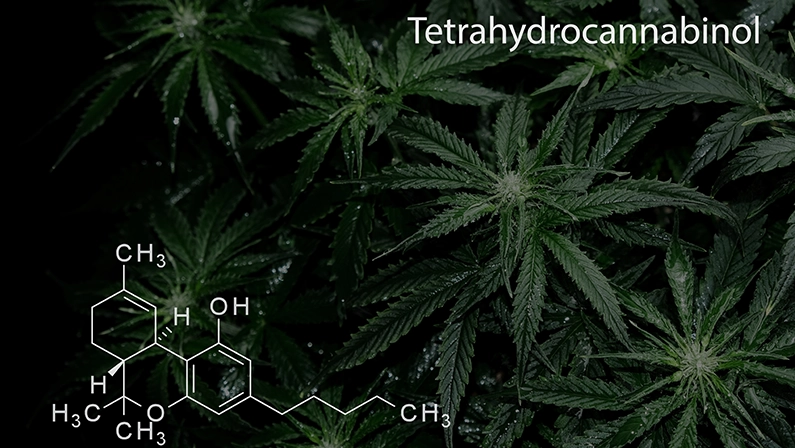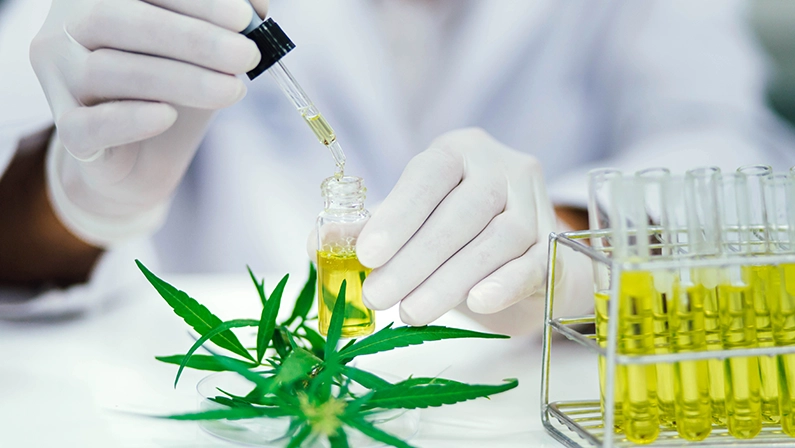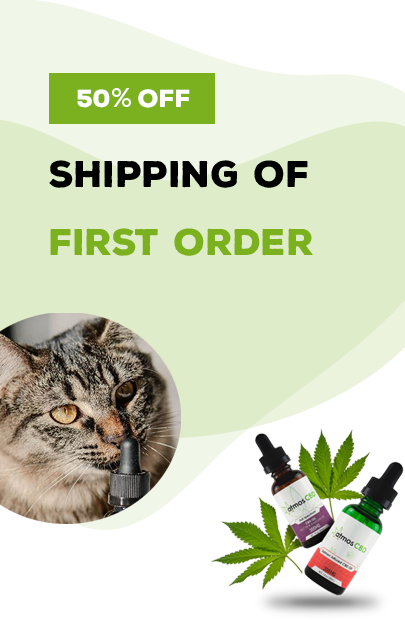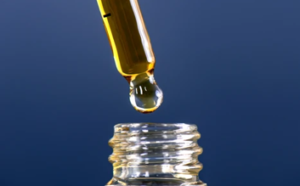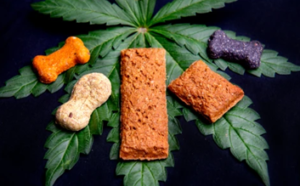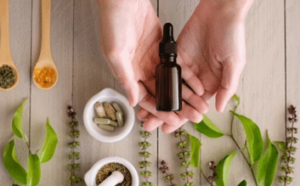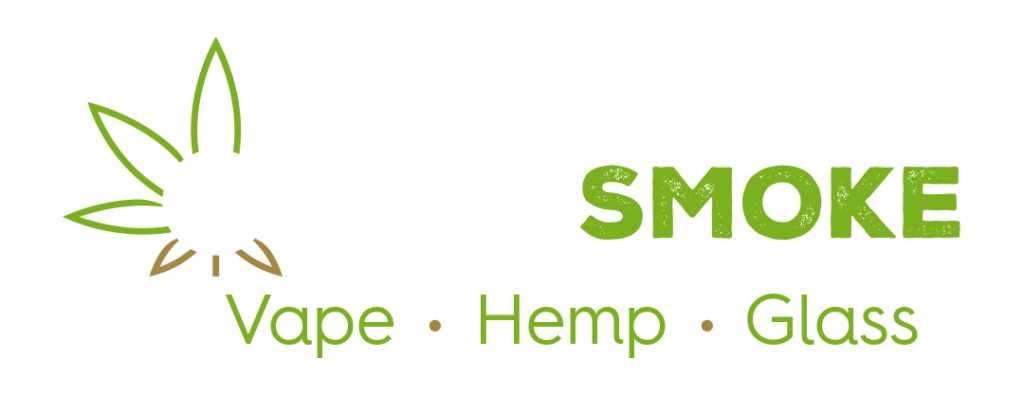In recent years, there has been growing interest in the potential therapeutic benefits of CBD (cannabidiol) for various health conditions, including Post-Traumatic Stress Disorder (PTSD).
PTSD is a mental health condition that can develop after experiencing a traumatic event, leading to persistent symptoms such as anxiety, nightmares, and flashbacks. As traditional treatments may not always provide complete relief, researchers are investigating alternative approaches like CBD.
This article delves into the world of CBD for PTSD, exploring its potential, best forms, dosages, legal considerations, and more.
What is CBD, and how does it interact with the body?
CBD is a natural compound derived from the cannabis plant, distinct from THC (tetrahydrocannabinol) in that it doesn’t induce a “high.” It interacts with the body’s endocannabinoid system, which plays a crucial role in regulating various physiological processes, including mood, stress response, and sleep.
Understanding PTSD: Causes, Symptoms, and Challenges
Post-Traumatic Stress Disorder (PTSD) is a complex and debilitating mental health condition that can develop in the aftermath of experiencing or witnessing a traumatic event. This event can encompass a wide range of situations, from combat and accidents to assaults or natural disasters. The aftermath of such experiences can leave lasting emotional and psychological scars that affect an individual’s well-being and functioning.
Causes of PTSD: Unraveling the Triggers
The causes of PTSD are rooted in exposure to trauma, which overwhelms an individual’s ability to cope and process the event. Trauma that can lead to PTSD includes physical or sexual assault, military combat, serious accidents, natural disasters, childhood abuse, and more.
It’s important to note that not everyone who experiences trauma will develop PTSD, as resilience factors, pre-existing mental health conditions, and social support systems also play a role.
Symptoms of PTSD: Unveiling the Psychological Struggles
The symptoms of PTSD can be distressing, pervasive, and disruptive to daily life.
They often fall into four main categories:
- Intrusive Thoughts and Memories: Individuals with PTSD frequently experience intrusive thoughts, flashbacks, or nightmares related to the traumatic event. These memories can be vivid and overwhelming, causing emotional distress and physiological reactions as if the trauma were recurring.
- Avoidance Behaviors: To manage the distressing memories and emotions associated with the trauma, individuals with PTSD may go to great lengths to avoid reminders of the event. This avoidance can include places, people, activities, or even emotions that trigger traumatic memories.
- Negative Changes in Mood and Cognition: People with PTSD may struggle with persistent negative thoughts about themselves, others, or the world. They might experience feelings of guilt, shame, anger, or detachment from loved ones. Difficulty concentrating, memory problems, and an overall sense of emotional numbness are also common.
- Hyperarousal and Reactivity: Hypervigilance and exaggerated startle responses are hallmarks of hyperarousal in PTSD. Individuals might feel constantly on edge, unable to relax, and easily startled by unexpected noises or situations. Sleep disturbances and irritability can also be prominent.
Challenges of Living with PTSD: Impact on Quality of Life
The challenges posed by PTSD are multifaceted and can significantly impact an individual’s quality of life.
These may include:
- Relationships with family and friends may become strained due to mood swings, emotional distance, and the inability to engage in social activities.
- Occupational functioning might suffer due to difficulty concentrating, heightened stress responses, and absenteeism.
- In severe cases, individuals with PTSD might turn to substance abuse as a means of coping, further exacerbating their challenges.
FAQs About CBD For PTSD
Here are some frequently asked questions about CBD’s capacity to treat PTSD.
What does research say about CBD’s impact on PTSD?
Preliminary studies are promising, but more research is needed to understand CBD’s full effects on PTSD. Some studies suggest CBD may help manage anxiety and sleep disturbances associated with the disorder.
Can CBD be an effective treatment for PTSD?
Research suggests that CBD’s interaction with the endocannabinoid system may have potential therapeutic effects for PTSD. It’s believed to modulate the brain’s response to stress and anxiety, potentially reducing the severity of symptoms.
How does CBD interact with the brain to alleviate PTSD symptoms?
CBD’s interaction with receptors in the brain, particularly CB1 and CB2 receptors, may contribute to its anxiolytic and calming effects. By influencing neurotransmitter pathways, CBD might help mitigate the emotional and physiological aspects of PTSD.
What are the limitations of CBD for PTSD treatment?
CBD is not a cure-all for PTSD. It may help manage symptoms, but it might not eliminate them entirely. Individual responses to CBD can vary, and some individuals may not experience significant benefits.
Is CBD safe for individuals with PTSD?
CBD is generally considered safe and well-tolerated. However, potential interactions with other medications should be discussed with a healthcare professional. Adverse effects are typically mild and might include fatigue or changes in appetite.
Are there legal considerations for using CBD for PTSD?
The legal status of CBD varies by region. While CBD derived from hemp (containing less than 0.3% THC) is federally legal in the US, it’s essential to understand local regulations before purchasing or using CBD products.
What is the best CBD for PTSD?
CBD products come in various forms, including oil, gummies, capsules, and topical creams. The choice depends on personal preference and desired onset time. Some individuals find that CBD oil or gummies offer a convenient and discreet way to consume CBD.
What dosage of CBD is best for helping with PTSD?
Dosage varies widely among individuals. Starting with a low dose and gradually increasing it allows one to find the optimal dosage that provides relief without unwanted side effects.
When is the best time to take CBD to help with PTSD?
The ideal timing for taking CBD depends on its form and the desired effects. For example, CBD oil taken sublingually might offer faster relief than gummies, which need to be digested first.
How to Choose the Right CBD Product for PTSD
As interest in the potential therapeutic benefits of CBD for PTSD grows, it’s important to make informed decisions when selecting a CBD product. With a multitude of options available on the market, choosing the right product tailored to your needs is crucial.
Here’s a guide to help you navigate the process effectively.
1. Understand the CBD-to-THC Ratio
One of the primary considerations when selecting a CBD product for PTSD is the CBD-to-THC ratio (THC CBD ratio for PTSD). THC (tetrahydrocannabinol) is another cannabinoid found in cannabis, known for its psychoactive effects. CBD products come in various ratios of CBD to THC, and the ideal ratio depends on your desired effects and tolerance.
For medical purposes, especially in the context of PTSD treatment, products with higher CBD concentrations and minimal THC content are often preferred. CBD is non-intoxicating, meaning it won’t produce a “high,” making it more suitable for managing PTSD symptoms without unwanted side effects.
2. Determine the Appropriate Dosage
Finding the right dosage is a critical aspect of using CBD effectively. Dosage can vary significantly based on factors like your body weight, metabolism, the severity of symptoms, and your body’s response to CBD. It’s advisable to start with a low dosage and gradually increase it until you find the optimal level of relief.
Consulting with a healthcare professional experienced in CBD use can provide personalized guidance on dosage adjustments and frequency. This is especially important when using CBD to manage PTSD symptoms, as finding the right dosage is essential for achieving the desired therapeutic effects.
3. Look for Third-Party Lab Testing
When considering CBD products, prioritize those that undergo third-party lab testing. Reputable manufacturers provide lab reports detailing the cannabinoid content, including CBD and THC levels, as well as the presence of contaminants such as pesticides, heavy metals, and solvents. These lab reports offer transparency and ensure that you’re getting a high-quality and safe product.
4. Consider the Delivery Method
CBD products come in various forms, each with its own onset time and duration of effects.
Common delivery methods include:
- CBD Oil/Tinctures: Taken sublingually (under the tongue), these offer a fast onset and can be easily titrated for dosage adjustments.
- CBD Capsules: Capsules provide a convenient and discreet way to consume CBD, but the onset might be slower due to digestion.
- CBD Edibles: Edibles, such as gummies, offer a tasty way to consume CBD, but effects may take longer to kick in compared to other methods.
- Topicals: Topical creams and balms can be applied directly to the skin for targeted relief, making them suitable for localized symptoms.
For those seeking high-quality CBD products, such as the best CBD oil for PTSD or the best CBD gummies for PTSD management, consider exploring the offerings from Atmos CBD. Known for their commitment to product quality, purity, and transparency, they provide a range of CBD products designed to cater to individual needs.
Can CBD be used alone or in combination with other treatments?
CBD can be used in conjunction with other treatments, such as therapy or medication. Consulting a healthcare provider is crucial to develop a comprehensive treatment plan tailored to the individual’s needs.
Embracing CBD’s Potential for PTSD Management
CBD holds promise as a potential tool in managing PTSD symptoms, offering an alternative or complementary approach to traditional treatments. While more research is needed to fully understand its impact, many individuals have reported positive experiences with CBD for PTSD. If you’re considering incorporating CBD into your treatment plan, it’s essential to consult with a healthcare professional to make an informed decision that aligns with your unique needs and circumstances.
Atmos CBD‘s diverse product offerings cater to various preferences and needs, from tinctures that seamlessly blend into your routine to delicious CBD-infused gummies and targeted topicals. Their approach acknowledges the uniqueness of every individual’s healing journey, making them a brand that resonates with those seeking tailored solutions for their well-being. Visit them today at Katy, Richmond, or Crosby, TX.





